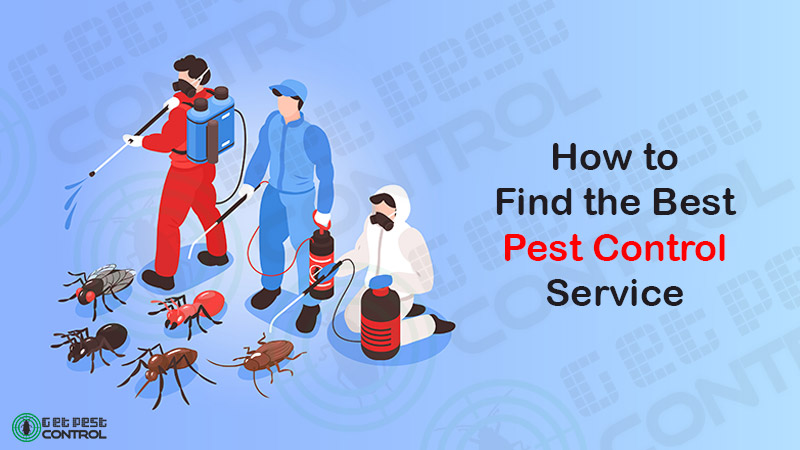Dependable Pest Control Auckland: Expert Extermination and Prevention
Wiki Article
Understanding Different Sorts Of Insect Control Approaches and Their Performance
The monitoring of insects is a critical facet of maintaining the health and honesty of numerous environments, from agricultural areas to household homes. When taking into consideration pest control approaches, it is vital to comprehend the diverse strategies available and their varying levels of performance. From chemical treatments to biological options, each approach provides special benefits and constraints. By discovering the subtleties of these bug control strategies, an extensive understanding of how to attend to bug issues can be established.Chemical Insect Control Techniques
Chemical bug control techniques play a pivotal duty in properly taking care of and eradicating pest invasions in various settings. These methods involve using chemical substances to remove or prevent pests such as weeds, rats, and insects. One of the crucial benefits of chemical pest control is its ability to offer fast and targeted remedies to pest troubles. By utilizing details chemicals that are developed to target specific bugs, this technique can aid protect against damage to crops, structures, and human health and wellness.Nonetheless, it is necessary to think about the prospective dangers and disadvantages connected with chemical bug control techniques. Overreliance on chemicals can bring about the development of pesticide resistance in insects, making them more difficult to manage in the future. Furthermore, using certain chemicals can have hazardous effects on non-target microorganisms, the setting, and human health and wellness if not applied correctly.

Organic Bug Control Techniques
Utilizing all-natural predators and virus to manage parasite populations effectively, biological insect control approaches supply a sustainable and environmentally friendly strategy to pest administration. By promoting the activity or presenting of organisms that normally take advantage of or contaminate bugs, such as ladybugs for aphid control or certain germs for caterpillar infestations, organic control can assist maintain insect populaces at manageable levels without the demand for artificial chemicals. This method is especially advantageous for chemical-free farming methods, as it stays clear of the use of possibly damaging substances while preserving plant wellness.
Physical Parasite Control Approaches
While organic parasite control approaches concentrate on harnessing natural predators and pathogens, physical pest control methods utilize physical and mechanical obstacles to handle bug populations. These techniques are commonly thought about eco friendly as they reduce making use of chemicals. Physical bug control consists of strategies such as capturing, making use of barriers like screens or nets, and literally getting rid of insects from the area.Catches are frequently utilized in physical pest control to catch and get rid of bugs like Full Article pests and rats. An additional physical approach is the use of barriers such as fencings, nets, or screens to protect against pests from getting in or infesting resource certain areas.
Natural Parasite Control Techniques
Including plant-based repellents and all-natural predators is an essential strategy in executing effective natural insect control methods. By motivating the presence of valuable bugs like ladybugs, lacewings, or aggressive mites, garden enthusiasts can normally manage pest populations. These killers feed on usual yard insects such as caterpillars, mites, and aphids, assisting to keep a well balanced environment without the demand for chemical interventions.
In addition, carrying out social techniques such as crop rotation, friend planting, and maintaining correct plant wellness can also enhance the effectiveness of all-natural insect control methods. These techniques not just aid in avoiding insect invasions yet likewise promote biodiversity and general environment resilience. By incorporating these all-natural approaches, individuals can properly handle parasites while lessening ecological influence.
Integrated Insect Monitoring (IPM) Approach
Applying an Integrated Insect Management (IPM) method is important for successfully controlling insect populaces while decreasing reliance on chemical pesticides. IPM is a sustainable and extensive method that combines various insect control he has a good point approaches to attain long-term services. This technique concentrates on prevention, monitoring, and control to resolve pest issues in an ecologically friendly way.IPM incorporates organic, social, physical, and mechanical methods with the critical and minimal use chemicals when necessary. By emphasizing proactive measures such as habitat adjustment, biological control, and exclusion, IPM aims to decrease bug populaces and their influence on the community. Routine tracking is crucial in IPM to analyze pest degrees properly and establish one of the most proper control approaches.
One of the essential advantages of IPM is its capacity to decrease the dangers connected with excessive chemical usage, such as environmental contamination and harm to non-target microorganisms. Furthermore, IPM promotes an extra alternative method to pest management by considering the total environment dynamics. On the whole, the IPM technique provides a effective and lasting option for insect control while advertising environmental responsibility.
Verdict
To conclude, understanding the various types of pest control techniques and their effectiveness is critical in properly taking care of pest problems. Chemical, organic, physical, and natural insect control methods each have their own advantages and constraints. Integrated Insect Monitoring (IPM) technique, which combines different approaches for sustainable parasite control, is progressively being identified as a eco friendly and all natural service. By making use of a combination of these individuals, companies and approaches can successfully control parasites while decreasing harm to the setting.Chemical bug control approaches play a crucial duty in effectively managing and eliminating pest invasions in different settings.Using all-natural killers and virus to take care of bug populaces properly, organic bug control techniques use a sustainable and green method to pest management. By promoting the activity or presenting of microorganisms that naturally prey on or contaminate bugs, such as ladybugs for aphid control or specific bacteria for caterpillar infestations, biological control can aid preserve insect populations at convenient degrees without the need for artificial chemicals.While biological pest control approaches focus on utilizing all-natural predators and pathogens, physical parasite control techniques utilize mechanical and physical obstacles to manage pest populaces. Integrated Insect Management (IPM) strategy, which integrates various techniques for sustainable bug control, is progressively being recognized as a ecologically pleasant and all natural remedy.
Report this wiki page